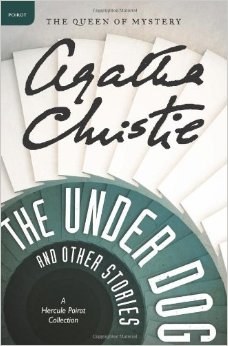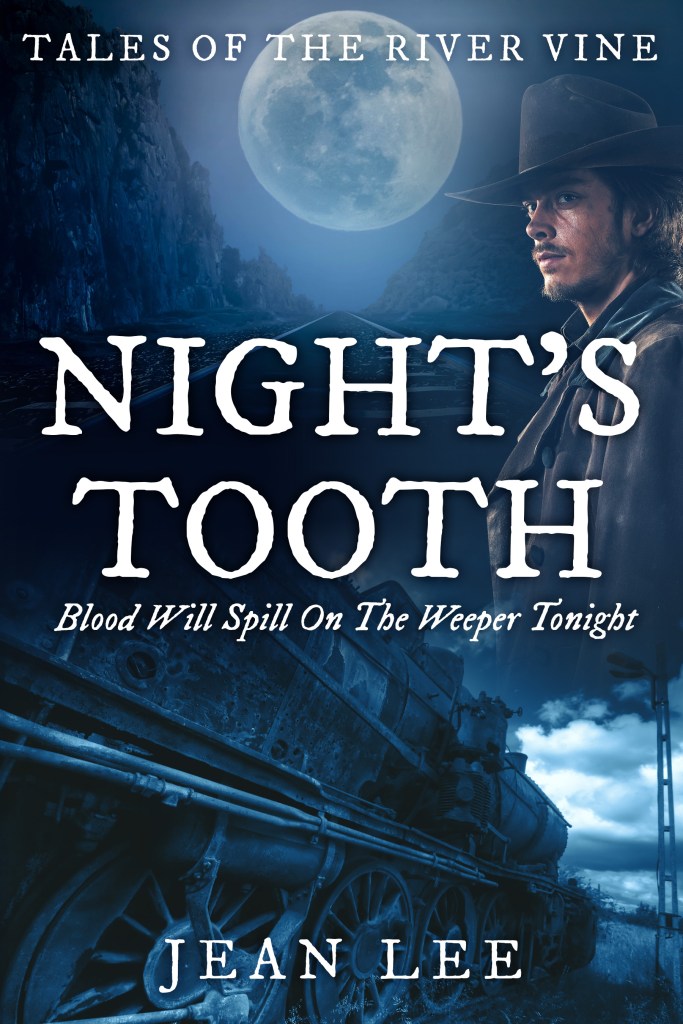Yes, I know that hashtag #characterdesign is more of an art-related thing, but it fits with this little lesson learned, believe you me.
This week started with its usual chaos: calls at 5am for a substitute teacher in 5th grade–no wait, Kindergarten. No wait, art, just art for aaaaaall the grades, can you do that? Bash wakes up with a swollen eye from Lord knows what (don’t worry, it left just as mysteriously as it came), university students re-submit work I had already flagged as inappropriate for the assignment requirements. On top of all this, another university contacts me to schedule an interview for a full-time gig. (insert excitement and anxiety here.)
Meanwhile, I did my best to stay in the writing community loop, reading about the racial controversy over American Dirt and learning from fellow indie author Michael Dellert that The Arcanist is calling for western speculative flash fiction:
Is there another short story inside me for the bounty hunter Sumac? I asked myself as the twelve-year-olds tried to stab each other with colored pencils. 1000 words didn’t feel like a lot of wiggle room. Night’s Tooth was meant to be a short story, after all, but writing a fantasy western inspired by Clint Eastwood’s The Man With No Name trilogy meant a LOT of slow-but-tense moments. Thus, the novella instead of the short story. (Click here if you’d like to read one of those moments.)
As magical showdowns percolated in my mind, I continued planning my excursion into the “dark, impulsive, whiny villainy” of Disney’s Star Wars. I had my collection of Robert McKee Story quotes at the ready for studying the bizarre mix of Hux and Kylo interactions in The Force Awakens and shift from there into the smothering subversions of The Last Jedi.
That is, until my perusal through Agatha Christie’s short fiction sparked a little something that I just had to share.
So we all know that when it comes to short fiction, you gotta pack a lot into a tiny space. Plot, character, setting–aaaaall that jazz has gotta be played at a heightened, almost truncated speed. There’s no time for meandering interludes or long drum solos.
(RIP Neil Pert. I know he wasn’t a jazz player, but Bo’s a HUGE Rush fan, so he’s been showing concerts to the kids and now I’m stuck in a land of music metaphor that doesn’t jive and we’re just going to move on because I clearly have no sense of what decade I’m in.)
Agatha Christie wrote over a hundred short stories. If ANYone knew the importance of keeping the story elements thrumming along, it was her. This is especially clear when she describes her characters. Like any good musician, Christie’s style moves sweet’n’slick with just the right amount of flourish.
Miss Lemon was forty-eight and of unprepossessing appearance. Her general effect was that of a lot of bones flung together at random. She had a passion for order almost equalling that of Poirot himself; and though capable of thinking, she never thought unless told to do so.
“How Does Your Garden Grow?”
In just three sentences, we’ve got a sense of this character’s physical appearance, interests, and mindset. Christie doesn’t dwell on the minutiae, like what Miss Lemon wears or how she does her hair. That all falls under “unpreposessing appearance.” But some readers whine when they can’t “see” a character without more precise detail. What if we picture different things? What if we don’t see the character the same way the writer did? THAT CHANGES THE READING EXPERIENCE, DOESN’T IT?!
Honestly, folks, does Miss Lemon’s outfit affect the story? No. Does it matter if each of us picture “a lot of bones flung together” (damn, I really like that bit) in different ways? No.
More importantly, a short story doesn’t have space to waste on that kind of detail. When a writer’s looking into contests like The Arcanist‘s, he/she can’t afford to spend a hundred words on description when forty will do the trick. Heck, even twenty’s enough for Christie in some cases. Take these character descriptions of two parents.

Mrs. Waverly’s emotion was obviously genuine, but it assorted strangely with her shrewd, rather hard type of countenance.
Mr. Waverly was a big, florid, jovial-looking man. He stood with his legs straddled wide apart and looked the type of the country squire.
“The Adventure of Johnnie Waverly”
Again, the colorful details are skipped in favor for body language and behavior. We get senses of these people–the hard, heart-broken mother, the upper-class, happy sort of father. We may not know what these two look like, but we know their body language, and in this we get impressions of their attitudes and behaviors, which are far more important than hair color.
Six months ago she had married a fifth time–a commander in the Navy. He it was who came striding down the beach behind her. Silent, dark–with a pugnacious jaw and a sullen manner. A touch of the primeval ape about him.
“Triangle at Rhodes”
Those third and fourth sentences say it ALL. “Silent, dark”–readers can already get a sense of a nasty face, but since this man’s “a commander in the Navy” then we know he’s going to carry himself like a man of authority and power. Words like “pugnacious” and “sullen” tell readers how he’s going to interact with the other characters: always negatively, aggressively, and without any sort of kindness. The fact he’s “primeval” practically forces readers to picture this character as a sort of sub-human, incapable of empathy or feeling.
And aaaaaall that characterization is given in just eighteen words.
When Poirot’s friend Captain Hastings narrates the story, Christie is also able to take advantage of her ever-lovable unreliable narrator, which allows her to misdirect readers when she so chooses.
The sixth Viscount Cronshaw was a man of about fifty, suave in manner, with a handsome, dissolute face. Evidently an elerly roué, with the languid manner of a poseur. I took an instant dislike to him.
Mrs. Davidson came to us almost immediately, a small, fair creature whose fragility would have seemed pathetic and appealing had it not been for the rather shrewd and calculating gleam in her light blue eyes.
“The Affair at the Victory Ball”
Oh, Hastings, you do love a pretty face. Poirot’s partner loves to let readers know when he’s a fan of a woman or not, consistently keen to describe her appearance and whether or not she’s attractive.Once in a while, though, he’ll catch something genuine, such as Mrs. Davidson’s shrewdness. Likewise, if Hastings doesn’t like a man, he’s obvious about that, too, and these opinions from Hastings always alter how he interacts with the characters as well as how he interprets their words and body language. This in turn affects the information readers receive, and so by the end of “The Affair at the Victory Ball” we’re just as surprised as Hastings to discover how wrong we are about these people.
Once in a while, though, Christie does allow a little drum solo when a minor character takes the stage. It seems to happen when it’s a character type Poirot, Hastings, or the omniscient narrator ignores in favor of more interesting goings-on: a mere citizen, a member of the populace where the mystery occurs. Sometimes it’s this common-ness that plays its part in getting Poirot to the mystery, such as in “The Adventure of the Christmas Pudding”:
Everything about Mr. Jesmond was discreet. His well-cut but inconspicuous clothes, his pleasant, well-bred voice which rarely soared out of an agreeable monotone, his light-brown hair just thinning a little at the temples, his pale serious face. It seemed to Hercule Poirot that he had known not one Mr. Jesmond but a dozen Mr. Jesmonds in his time, all using sooner or later the same phrase–“a position of the utmost delicacy.”
“The Adventure of the Christmas Pudding”
And this bit from “A Cornish Mystery” is a lovely reminder to readers and writers alike that every setting’s character, no matter how bland and un-unusual, is still a person with problems, fear, and feeling.

Many unlikely people came to consult Poirot, but to my mind, the woman who stood nervously just inside the door, fingering her feather neck-piece, was the most unlikely of all. She was so extraordinarily commonplace–a thin, faded woman of about fifty, dressed in a braided coat and skirt, some gold jewellery at her neck, and with her grey hair surmounted by a singularly unbecoming hat. In a country town you pass a hundred Mrs. Pengelleys in the street every day.
“The Cornish Mystery”
It seems Hastings spends an awful long time introducing us to a character that’s just one of a hundred one would pass in the street–81 words, in fact. Why so much time on a single, ordinary character in a short story? Hasting’s description creates an expectation of ordinary-ness, regularity, typicality. But of course, Christie being Christie, this time spent on an ordinary character comes with reason: this ordinary character, this one of one hundred, is murdered. Why would someone murder this one Mrs. Pengelley out of a hundred one would pass on a country town street?
Ah. That is why the reader reads on.
So when you work on your own character designs, writers, always ask yourself what matters more: the character’s appearance, or behavior? The character’s look, or feelings? A character’s choices are often the influence of action and pacing, but there’s no denying that sometimes, a character’s appearance alone may twist the narrative into surprising directions. What matters is that you share character traits important to the story. Picturing a character’s apparel means little when readers cannot see a character’s attitude.
~STAY TUNED NEXT WEEK!~
Back to The Young and the Restless of Disney’s Star Wars villains!

Read on, share on, and write on, my friends!






You should write a book based on your crazy life. People like me would really get this. My reading time is so truncated these days often short stories are a godsend. So many large books have had to be restarted as I can’t remember the plot so far. Sadly too many books and film are just based on stereotypical images. Viewers and readers see the image and are then expected to attribute behaviour to the character.
LikeLiked by 4 people
Yup, exactly so. It’s a shame when stereotypes are used as though they’re, you know, not boring. Sigh.
LikeLiked by 1 person
It’s the way the often paint characters with autism. They often just have one playbook they go to. It’s boring and it also leads to wider misconceptions. Double sigh.
LikeLiked by 1 person
YES. There’s no attempt to look beyond the typical to see the individual.
LikeLiked by 1 person
Didn’t know Neil Peart had died – I used to love Rush, and Neil was a fantastic percussionist.
LikeLiked by 3 people
I’m not a Rush fan, but I’ll be the first to admit Neil was AMAZING on the drums. He died of brain cancer last month–apparently he’d been fighting it for 3 years.
LikeLiked by 1 person
Excellent post Jean. yep lots of ways of giving a character to a reader in a few words.
LikeLiked by 4 people
Thanks, Shey! I agree. We don’t need to give readers a police bulletin on every single character in the story.
LikeLiked by 1 person
I know. A bullet point is fine! x
LikeLiked by 1 person
I love reading about Agatha Christie, but keep us posted on the full-time gig at the university.
LikeLiked by 4 people
I will, thank you! xxxxx
LikeLiked by 1 person
Such wonderful examples of character description that you’ve pulled together here, Jean — very useful! I love Agatha Christie, but it occurs to me that I’ve only read her novels, not her short stories. Now you have me curious.
I know what you mean, that the reader doesn’t really need to know details like hair color or dress type, etc.; not unless they stand out in some way and are important to the story and to how other characters react to this person. I often feel frustrated when I read long descriptions of what the characters are wearing that I don’t understand the *relevance* of such details: that is, is that a snobby thing to wear in that time and place? A sign that they’re behind the times? In reduced circumstances? Very conservative? Perhaps the other way — ultra fashionable or even risque? I mostly care about how other characters *interpret* their appearance and behavior, and I don’t need many specific details to understand that.
And yes, I often don’t know what decade I’m in, either. 🙂
LikeLiked by 3 people
Yes, exactly so! I’m all for learning about specifics of appearance *if they matter.* Considering the wordcount restraints of flash fiction,I would hope writers would fix upon the words that DO matter. 🙂
Ironically, I’m watching an 80s documentary while typing this. Gah, this decade! 🙂
LikeLiked by 1 person
I hear you. I’m working on a first-person story told all in dialogue by a blinded character. The whole *point* of this is to emphasize what you can learn about someone just by their words, and in the story there’s a great deal of emotional interactions. And yet some of the critiques said that they just couldn’t relate to the character unless they knew his hair color, height, and the rest of the physical description. Argh!
LikeLiked by 1 person
It’s so frustrating! But then you think about the more recent self-insert characters–Neo, say, Bella Swan, Christian Grey–and their *behavior* is very bland. Like, you know how they look, but they do, act, say, THINK, seemingly very little. Maybe that’s how people put themselves into the story…
LikeLiked by 1 person
Good point. I chalked it up to “you can’t please everyone,” which is an important thing to remember when getting critiques from multiple people. Now, if they *all* criticize the same thing, that’s a different matter!
LikeLiked by 1 person
Truth! x
LikeLiked by 1 person
Fascinating! Agatha Christie’s stories have been so widely filmed and serialized that the brilliance of her writing is often overlooked. I really enjoyed those examples and you and she are so right. the readers (well, this one anyway) love to create the image of a character in their head. To me, that’s part of the ‘contract’ between writer and reader.
Best of luck with the full-time uni job, Jean!
PS – what decade? what century more like 😉
LikeLiked by 4 people
HA! Century, it is! The kids are wickedly good at making me feel old when they say, “Mom, when it’s 2050, I’ll be XX, just like you are now!” Sigh….
Anyway, yes, Christie’s so often seen as a genre writer that I think people forget WHY readers continue to read her writing. Flat prose and poor craft will lose even the best of stories to the ages. Sure, she has her tropes–Poirot confronting the whole cast at the end, for instance–but they BECAME tropes because of her. 🙂 That, and Poirot’s ego/character makes no other ending make sense, lol.
LikeLiked by 1 person
Such a wonderful legacy 🙂 So much more to read and enjoy.
LikeLiked by 1 person
Reblogged this on lampmagician and commented:
The Lessons learned 😋 treasures are here. Read on 💖🙏💖
LikeLiked by 2 people
You rock, my friend!
LikeLiked by 1 person
With your help 😊💖🙏💖
LikeLiked by 2 people
Can’t tell you what to do with Night’s Tooth, but loved the first install and owe you a review. I’m sure you are an amazing teacher as your informative and action-packed posts indicate. I hope you nab the full time jobs so you can steady the ship a bit. Sometimes it helps knowing ahead of time where you’ll be on a any given day. ❤️
LikeLiked by 4 people
Oh, thank you so much! I’m honored you read it 😀 You’re so right that it’d be nice to know what my day’s like ahead of time. Subbing was okay for a while, but the unpredictability just really wears a person down. 😦 I’ll keep you posted as to what happens–the interview is TODAY!
LikeLiked by 1 person
Good luck!!! 🍀
LikeLiked by 1 person
So sorry I’m late yet again. My short term memory was never that good…’tis getting worse! Recently I’ve been throwing words at the page. Somewhere along the way an edit is due. In its raw form I have written of a bit part within my tale. The question is, is he a believable character.
…“Bon Dieu, c’est une histoire. Dites-moi, est-ce vraiment un rêve ou étaient tout simplement le faire jusqu’à que vous alliez le long de faire notre voyage se sentir moins long?” so said the seasoned seafarer, a bearded old man with an impressive beer belly, claiming immunity to the chill of the night, wearing a beret not unlike mine, a flea-bitten Breton shirt, a rifle on his lap, whose name I never did catch.” At least most would pick up on the point that he is French!
LikeLiked by 3 people
I’m just happy to hear you’re writing, Master Steeden! I’m so swamped with grading I’m not even sure I’ll get my villainy post written, ugh. Excited to hear what tales this seafarer will share!
LikeLike
Lovely informative post, Jean, something that shows up time and again in classic fiction, too.
I’m keeping my fingers crossed for you regarding that interview.
LikeLiked by 3 people
Thank you! It was…well, I’ll explain later. Sigh. But I’m glad you enjoyed the post!
LikeLiked by 1 person
Sorry I’m so very late to this post, Jean… I’m trying to reset my priorities and haven’t yet got them right. And like you, have a rather demanding personal life at times when family crises intrude *sigh* two this week and counting… Now I’ve got the grovelling excuses out of the way – huge congratulations for another stormingly good post on an important issue, regarding establishing characterisation when the wordcount is limited. People always default to appearance, rather than thinking about whether it actually matters, or is representative of what defines that person’s characteristics.
Fingers crossed that the job interview went well!!
LikeLiked by 3 people
Hi! Sadly…no. Suppose I’ll have to say something about that next time. It was such bullocks–a swell phone interview, but the in-person interview COMPLETELY changes the demands of the job. And then they cancelled the job opening completely. (smh) Ah well. We keep on keepin’ on, yes? And I’m so glad you dug the article! Even now I’m watching the David Suchet episodes. Ah, Poirot stories are like a cozy blanket and cuppa in winter… 🙂
I pray your crises subside soon! There’s always something, but hopefully less of something soon.
LikeLiked by 1 person
Thank you, Jean – a prayer would be very gratefully received:)). Hopefully it will blow over with no harm done… hopefully.
So sorry to hear about the rotten job interview – a slight comfort knowing they will have wasted their own time and money on advertising a post they then withdrew. Less so, when it’s your own time and money wasted! But my mother is fond of saying, ‘As one door closes, another one always opens…’ and I’ve been surprised at how often she’s right. Hoping that’s the case for you, my friend:).
LikeLiked by 1 person
Thank you! I still have hope. God’s Plan doesn’t always make sense to us, but just as your mom says, opportunity never entirely leaves us. We just have to keep looking where we hadn’t before.
And I’ll pray hard for you! Sending hugs from Wisconsin, too. xxxxxx
LikeLiked by 1 person
Thank you, my friend – I’m praying for you, too! xxx
LikeLiked by 1 person
Pingback: Sunday Post – 16th February, 2020 #Brainfluffbookblog #SundayPost | Brainfluff
I made the list! (insert happy dance) You just threw a little sunshine on my Sunday today, Friend! xxxxxxxxx
LikeLike
Tx for sharing wonderful writing insights 🙂
LikeLiked by 1 person
Thank you!
LikeLiked by 1 person
I’ve read Agatha Christie short stories for years. Thank you for the analysis!
LikeLiked by 1 person
And thank you so much for commenting!
LikeLike
Pingback: The Happy Benefits of #Rereading Old Favorites. #WritingLife #WritingTips | Jean Lee's World